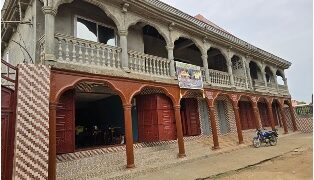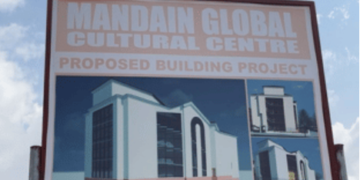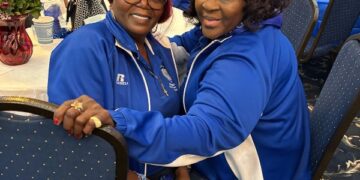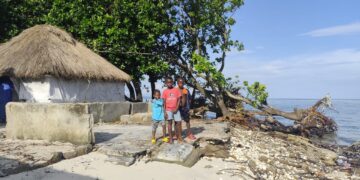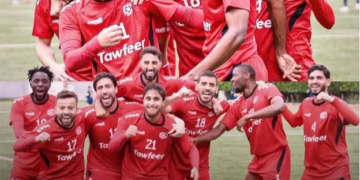By Alpha Amadu Jalloh
Mr. President, I trust you’ve placed an order for my book, “Monopoly of Happiness.” I hope you have instructed that it be stored in your newly created Presidential Archives and distributed across every ministry and institution in Sierra Leone. Why? Because, Mr. President, this book is not just another publication; it is the manifesto for Sierra Leone’s new development process. It is clear, direct, and focused on the transformative path our nation must take to finally rise above decades of stagnation.
Mr. President, “Ar kno Sae Yu Go Dae Feel Sae Ar Dae Bluff Yu.” But believe me, Mr. President, I am not bluffing. This book is a roadmap for Sierra Leone’s future, a future where the pain and suffering of our people become stories of the past.
Now, I know some people say you’re too serious, that you don’t have much of a sense of humour. But I’ve had the pleasure of speaking with you, and I must set the record straight. During our conversations, you’ve made me laugh. Yes, you can poke fun, and you do have a light side. But Mr. President, our people are not laughing. They are not laughing because their reality is grim.
And today, I want to bring your attention to a matter that is anything but humorous.
Mr. President, have you considered the plight of our fellow Sierra Leoneans languishing in prison cells across the country? For years, many of them have been locked away without ever being charged or given the opportunity to stand before a court. This is a grave injustice, one that reflects poorly on our justice system and on us as a nation.
To be fair, I recognize that the acting Chief Justice has made strides in expanding court facilities to remote areas of Sierra Leone. This initiative is commendable, as it seeks to bring justice closer to the people. However, Mr. President, expansion alone is not enough. These courts lack the necessary manpower and resources to function effectively. Judges are appointed to these courts, but many of them do not reside in their assigned areas. Instead, they spend most of their time in Freetown or larger cities, leaving the courts in rural regions neglected and ineffective.
Mr. President, our country is not lacking in lawyers. Yet, many of them shy away from taking on cases involving those who cannot afford legal representation. The result? Innocent people are left to rot in jail cells, their lives wasting away over petty infractions.
Let me tell you with authority, Mr. President, many of the individuals currently incarcerated have no business being there. Take, for example, those imprisoned for owing money to someone else. These are not criminals. These are victims of economic incapacity, a direct consequence of the harsh living conditions under your leadership. When people are struggling to make ends meet, they are vulnerable to exploitation by those who have more. Instead of finding ways to mediate and resolve these disputes, we throw the poor into prison, compounding their suffering and breaking their families.
One agency that stands out in the fight for justice is the Legal Aid Board. They have been working tirelessly to represent those who cannot afford a lawyer, ensuring that even the poorest among us have their day in court. Their efforts are commendable, and they have made a tangible difference in the lives of many prisoners.
However, Mr. President, the Legal Aid Board cannot do it alone. They need more resources, more funding, and more support from the government. I urge you to create a dedicated support line for agencies like the Legal Aid Board. Give them the tools they need to continue their vital work and expand their reach.
Mr. President, I understand why many lawyers hesitate to take on cases for the poor. The legal profession, like many others in our country, is underpaid and undervalued. Taking on pro bono cases means sacrificing time and resources that could be spent on more lucrative pursuits. But this is where leadership comes in.
You, Mr. President, have the power to incentivize lawyers to serve the public good. Create a system that rewards legal professionals who take on cases for the underprivileged. Offer them tax breaks, public recognition, or even government contracts. Encourage a culture where justice is not a privilege for the wealthy but a right for every Sierra Leonean.
Mr. President, I challenge you to take a walk down to the Pademba Road Correctional Center. Speak to the prisoners. Listen to their stories. Understand why they are there. You will find that many of them are victims, not perpetrators, of a broken system. You have the power to change their fate. You have the power to reduce the number of prisoners in our jails.
Mr. President, as the Fountain of Honor, you have the constitutional power to grant clemency. I urge you to use this power generously. Release all prisoners who are locked up for minor offenses, especially those whose only crime was being poor in a country that offers them little hope.
This act of mercy would not only bring closure to countless families but also send a powerful message that Sierra Leone is a nation that values justice, compassion, and human dignity.
Mr. President, every person in prison is someone’s child, parent, or spouse. Their absence leaves a void in their families and communities. Children grow up without fathers and mothers. Wives and husbands struggle to survive without their partners. Families are broken, and communities suffer. By addressing the injustices in our prison system, you can begin to heal these wounds. You can restore hope to those who have been forgotten and give them a second chance at life.
Mr. President, I know you care about Sierra Leone. I know you want to leave a legacy of progress and development. But true progress is not measured by the number of roads built or awards received. It is measured by how we treat the most vulnerable among us.
Please, Mr. President, act now and reform our justice system. Support the Legal Aid Board. Incentivize lawyers to serve the poor. Visit our prisons and listen to the stories of those who have been forgotten. And most importantly, use your prerogative of mercy to bring justice and closure to those who need it most.
Mr. President, the people of Sierra Leone are watching. Will you rise to the occasion?


